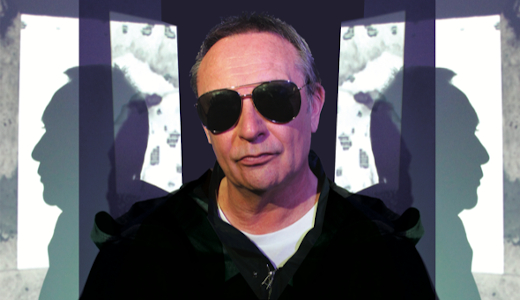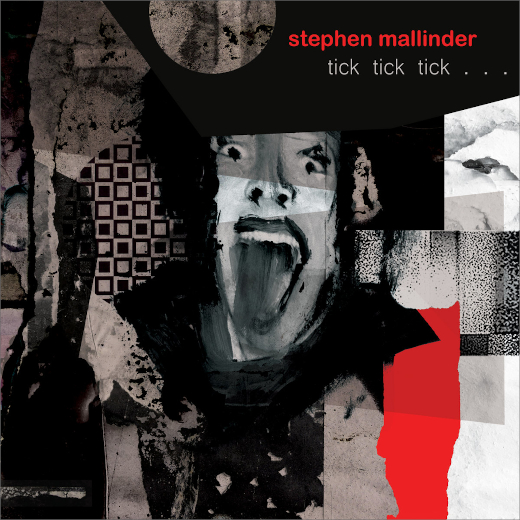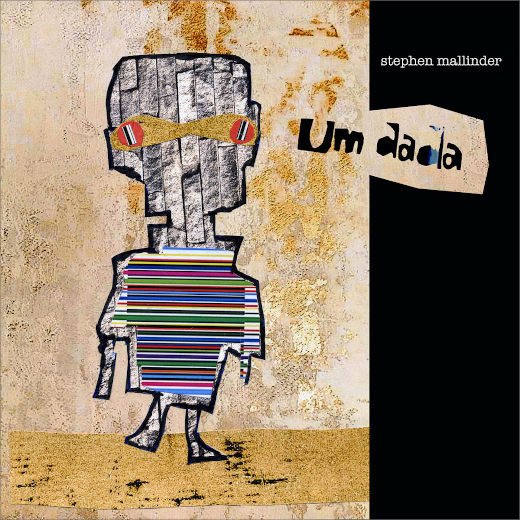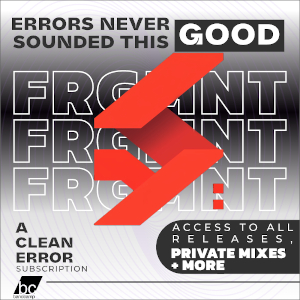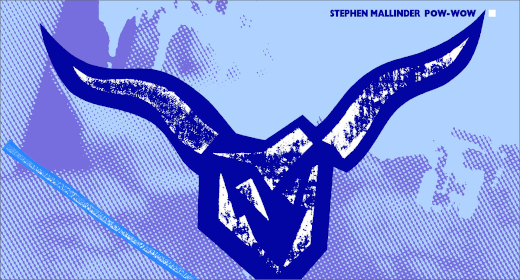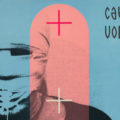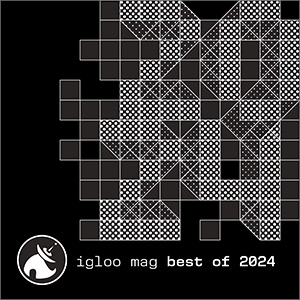In this interview, Chang Terhune spoke with Stephen Mallinder about many things like his latest album Tick Tick Tick (Dais), his past work, the passing of Richard H. Kirk, his current role as an educator, as well as the future of Cabaret Voltaire, and much, much more.
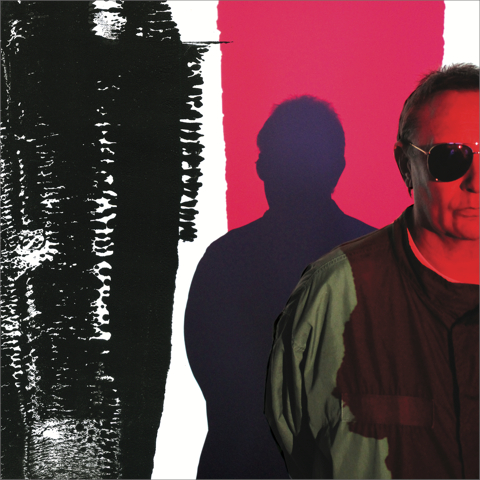
Synths, drum machines, and other manipulations
Russia is overrunning Eastern Europe, inflation is high worldwide, Iran is in turmoil, and fascism is rearing its ugly head again. One could be confused into thinking it was 1982 but it is in fact 2022, and this is the world we live in. As the old saying goes “The more things change…” Yet one person who was there and here now and hasn’t stayed the same is Stephen Mallinder. Mal, as he is more commonly known, is one third of the founding members of Cabaret Voltaire and one of two surviving members following the untimely death of Richard H. Kirk in September of 2021. But, while Kirk may have been more prolific in that time, what is also true is that Mal never stopped making music. Though his pace was slower in the post Cabs years due to getting a couple PHDs, a wife, kids and grandkids, Mal has been making music all along at a steady pace.
His most recent release, Tick Tick Tick (Dais, 2022) is arguably his best solo work yet. Its roots are solidly in underground dance culture while deftly wielding elements from Mal’s past works. Mal plays bass here on Tick Tick Tick for the first time in a while and it still punches its own weight among the synths, drum machines, and other manipulations.
In this interview, we spoke about many things like Tick Tick Tick, his past work, the passing of Richard H. Kirk, his current role as an educator, as well as the future of Cabaret Voltaire, and much, much more.
SPREAD THE VIRUS ::
Chang Terhune / Igloo :: So, how has your experience been during the pandemic? I like to ask folks this because the answers I get are fascinating.
Stephen Mallinder :: It’s been fine, same as everyone else. That hiatus when it happened was a massive relief. I live an incredibly hectic life and I do so many different things and so all of a sudden, that which we all strangely crave is a break. And that not loss of control but the loss of being able to direct everything meant you relinquish some of that. And so, for a brief period, it was quite nice, because somebody pressed the pause button on everything. It was like, “Well, you’re not going to starve. No one’s going to take everything away from you, music and film and art or whatever away from you,” wound it down. Actually, that stood for about two weeks, and it was a lovely two weeks, it was great, but then…
That was while everybody’s still baking, everyone’s playing games, we’re doing fun Zoom calls with drinks and shit?
(LAUGHS) Yeah. But it was great for me, in a strange way, because one of the things I do is I sound art masters and undergraduate BA down here in Brighton. It was Easter Break 2020, so basically, there was a natural hiatus and we all chilled but then suddenly it’s like, “Okay, you’ve got to convert to distant learning.” And I’m responsible for a lot of students and there was a lot of mental health issues suddenly happened. I’m dealing with art students who are struggling with things, so all of a sudden, for me, on a personal level, it was like, “Courses that are based in installation art and spatialization are going to have to be redesigned for a world that is locked in a bedroom.” So it wasn’t very helpful to be told, “It took Open University 17 years to do this, you’ve got 11 days to figure it out.” It was quite good, actually, because I wasn’t able to think about anything else, my own work, in that sense, and I focused on that. Because I had the responsibility for a load of younger people, some mature students, so I focused on that and it was really good. I was grateful for it, because I had that responsibility for people.
Whereas my own music was a pain in the ass, because we brought out A Situation (Bella Union), the Wrangler album a week before lockdown. Also, we’d done two of the most amazing videos for the album and you go, “There’s a world pandemic, you can’t just go and, ‘Hey look, check my fucking amazing videos that have just been done for the album.'” They’re stunning, to this day, they’re two of the best videos. People see them and go, “They’re the most amazing.” I worked with young artists to do them and they were brilliant. So, on the one hand, I got this thing of my own work and my own music was really weird, it had stopped.
But also, very fortunate in the sense that the week before the lockdown happened, Benge and I had spent 10 days in the studio and finished the Clinker album (Les Disques Du Crépuscule), which is the album me, Benge, and Julie (Cambel of LoneLady) had done. So I just completed an album, and I had all this work that was there already, so it was nice, and then I just shifted my focus. I spent the next three months dealing with how to do graduate shows in sound art and spatial art and film. I had to run that for three months. And then as soon as there was a brief hiatus in the lockdown during that first summer I shot down to the studio and started recording with Benge. I worked and then as soon as we were able to move around, I went and recorded, so actually, it was fine.
So the bulk of Tick Tick Tick was done at home and then running down to the studio to record bits properly. I worked really hard. Also, I was doing a lot of writing and I had book deals and things like that. We’re humans, we adapt, and I am an adaptable person, so I just literally adapted to the conditions. And then, like everyone, just watched the world invert and change, just with a level of shock and horror. But it was also bizarre, because my daughters are in Australia, so I was separated from my children. I’ve still not seen them since COVID happened, so I’ll be seeing them at the end of the year. I have a very fragmented life in the first place, so my life, it’s one of a certain regulation, but it’s not one of massive routine, so COVID came and I just went, “Okay, I’ve got to change this to another routine.”
But I worked continually through it, writing and recording, as soon as I was able to put me head up then I did loads of stuff. You just go “I’m kind of flexible,” you continue to work. I did the Working Men’s Club stuff remotely, I did stuff for DFA remotely. I was doing remixes for people working from home. And as soon as there was a moment when we could all come out, then I was doing stuff with Working Men’s Club, DJing with them, and then back out again now. I just started giggling again, me and Benge. I’m not stupid, I don’t want to put myself or anyone else’s life in danger, but at the same time, as soon as I was able to get out and work, I was up and out like everyone else. That’s all right.
It’s been fascinating to ask people this, because some were understandably upset about a lot of lost revenue from touring and DJ gigs while others have hunkered down to practice their craft. So that leads me into when you were recording Tick Tick Tick. Was it just, “Oh. Now who’s got a break? Studio time!” or was it just…
No, we’re constantly working because we go in cycles and it was lifted. It wasn’t like everyone went, “Why did you do a Mal album?” when I did Um Dada (Dais) then everyone went, “Well, why did you do another one?” And it was because it was on a cycle. The point is that I just decided to use my name instead of hiding behind aliases and doing it in a different way. And Tick Tick Tick has nothing to do with COVID. We just released a Wrangler album the week of lockdown so there was no way we were going to do another Wrangler album and I was at home, so I could write an album.
Oh, nice.
I don’t decide “What can I do at this moment in time?” I’m more or less constantly doing lots and lots and lots of different things. So it wasn’t, “Oh, I’ve got time. I’ll do a Mal album,” it was like, “Well, we don’t need to do any of the other so I can concentrate on this.” So I cracked on with it, and I would’ve been doing that anyway to be quite honest with you, because we probably would’ve been gigging the Wrangler album when lockdown happened, but we weren’t, so it was easier to do that. Also Benge and I work very closely together, so it’s easy for us to just lock in together and do that.
It’s nice to have someone when you can work really well and really easily with them. I really admire your work ethic. Getting one PhD is no small feat, but two? Then continuing to release stuff? You’ve kept up and the output’s been really good.
Now, as I wrote in Igloo, Tick Tick Tick is amazing, your strongest work since Pow-Wow Plus (Doublevision). Something I really love about it is seeing your evolution as an artist from one of three kids just fucking around with tape recorders and getting shit thrown at you in pubs in the 1970s (which were such a weird, awful time of music) where you’d want to get in people’s faces and draw a reaction. But in The Quietus you were talking about your favorite music, and how you all had a strong funk background obviously. But this album has soul—and I’m not saying you’re writing love songs now, Mal, (LAUGHTER) – there’s some sexy stuff on Tick Tick Tick. Like “Hush” is really sad, but it’s also really beautiful. I’m wondering did you think over time with the tracks you worked on “Oh, these are all coming together in this thing that will be Tick Tick Tick.“
Yeah. I did, really. I think when you’ve been making music for a long time, there’s got to be an open playbook that you go, “Nothing’s excluded.” And I don’t totally imagine what the finished record is going to be like. So you want to keep it open because you want to be able to respond to things that you do because you making music is about play. I play, it’s fun. I enjoy it. Experimental music was played, the weird stuff with tape recorders. It may seem profound, but it wasn’t. We were playing. It was art. That’s what art is. Creativity is being able to remove those shackles that are on you. It’s about being able to have the freedom to express, and it’s this joyful thing.
So you have that, but at the same time I had to go in with a certain vibe of what I wanted. At the moment, I’m doing Creep Show, I’ve done Blinker, we do Wrangler all the time. Each one has to have an identity. The danger is if you make a lot of music and you bring a lot of music out, you may change the names, but it’s the same shit every time, and I didn’t want to do that. So it has to have an identity. And I had a specific feel that I wanted for Um Dada, which I went in with a very specific idea and the instrumentation and everything. I knew exactly what I wanted it to sound like, even though I wasn’t sure what it was going to sound like, but I had an idea. That’s because when it’s my stuff, it has to have distinction from the stuff I do with other people.
So it was open, but at the same time there was an emotive part to it. If you put your name to something, and I put my name to it, it was Mal, it has to be something much more personal and much more emotional. And so therefore it does. And that’s what it did do. Wrangler is much more political and overt. People don’t always see that, it’s very political in terms of the way I approach it. And it’s a lot harder as well, and it’s meant to be. And it’s meant to have some of my soul in it, my personality. So if it has that, it’s because I invested in it, and it has to be a level of humanness in it, my own thing in it.
And so therefore I had to put that in there. And also I’ve made so much experimental music and I’ve made so much weird music, sometimes I find it a challenge to actually hone it in and make something that is slightly more coherent. And so Tick Tick Tick was meant to have certain human elements and have a certain coherence to it because otherwise it would’ve just been another Wrangler record.
Yeah, exactly. I hear that.
Creep Show has an identity and because it also reflects all the people involved in it. Wrangler has an identity because it represents those involved. And anything with my name on it has to represent me and I don’t intend it to be like that, but I guess that’s what I’m like a little bit.
And I save all my weird shit for all the other things I’m doing. I’m in the middle of doing a sound installation, which is about horror, working with someone. So I’m helping them do the sound, I’m doing sound design with that. So I do strange things, but when I do a record for Dais, it’s got to have some meaning, it’s got to have a place. And so Tick Tick Tick sounds like that, because I felt that’s the place it should be, because it’s got my name attached to it. It’s not done under an obscure name or done as a weird thing. It’s just me laying it out, basically.
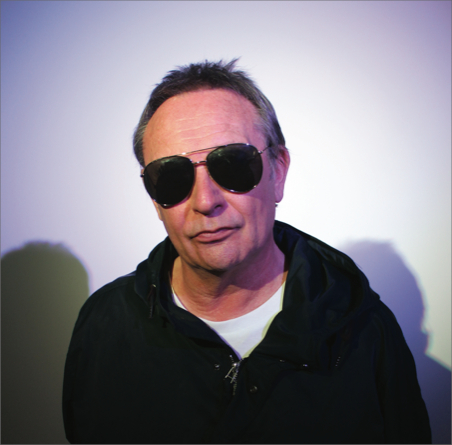
WE GOT HEART ::
I’ve been listening to Tick Tick Tick about two or three times a week since I got it. Just really fascinating because you play bass on it and for me you’re one of the guys who made me pick up a bass guitar in the first place. And for me to hear that now when I’m still trying to incorporate my bass into my music without it sounding just like, “Oh, here’s techno, with bass,” is amazing. It’s organic and you’ve done that quite fluidly. You’ve touched on this a little bit already but was there a moment when you thought “Oh, I should have a little more bass on this album because I play bass,” or was it just like, “Oh, this might work?”
I’ve said this a few times where I did actually say to Benge, talking about the sound, because when Benge was producing, he would work with me and I’d written, and he’s going, “So what kind of sound is it?” And I said, “We’re going for something that collapses together Terry Riley and the Jacksons.” And he went, “Okay.“
Be still, my heart. That’s beautiful!
So it’s that idea of groove, drone and repetition, and why some of the tracks are quite minimal. I don’t try and build it up in a dramatic way, but to groove, make it a physical thing. Sometimes it basically was a way of actually giving not only just a different textural feel. But also the other influence, which is really odd was Arthur Russell in his kind of strictly rhythm in that funk period that he was doing. Arthur Russell did everything, but when Arthur Russell loved a groove he really worked it, so I wanted that groove and I felt the bass guitar gave a level of groove to it that it didn’t.
So it was just that: a physical thing. It’s a human thing of playing something which you don’t get with synthesizers. So I just wanted a little bit of that in there, and that was just a way of doing it. And also the thump of it. It was great doing Shock to the Rhythm, which actually I had to get Benge to help me play the bass because it took four hands because I played the bass with the drumstick.
Oh, wow! (LAUGHS)
Yeah. So it had to be played in a way that I had to deaden certain strings. So Benge and I were using both hands and I was using the drumstick. So there’s also physicality. Well, we play a lot of percussion on both albums where most of the percussion is all hand played.
That’s wild.
Yeah, yeah. We have to quantize fair amounts but if you listen to it, all the high shakers and percussion and all that. But because it fits into that which gives it a groove. It’s me playing bass with a modular synth. Music moves into a purity of vibe that it has to be either organic acoustic instruments or it is electronic. So it’s quite nice when you can meld them. It doesn’t always work, as you said, but I think on some of those, it worked quite well.
Absolutely. And Cabaret Voltaire were one of the first bands who really mixed things up. You and New Order as contemporaries were mixing electronics with guitars and saxophone and devices. New Order and Peter Hook who’s the other reason I play bass, the two of you. I think it’s funny that two guys from the Sheffield/Manchester area are the reason a kid from Connecticut thought, “Well, I can play bass too, I guess!” I think Hooky said they were a punk band that wanted to be a dance band but ended up being this other thing. But you guys were into a lot of funk, R&B plus other stuff and melding that.
Yeah.
Now back to Arthur…
Arthur Russell.
Yeah, Arthur Russell. I gotta say I have a weird thing about Arthur Russell. Whenever I sit down to listen to his music, I can’t stand it. But anytime anybody uses it in a mix or a sample, it’s fucking beautiful.
He also made so much stuff it’s impossible to get your head around what he did. Half the stuff he did was country music! (LAUGHTER) And yet he made amazing New York garage stuff as well, which is wonderful. So yeah, he’s a difficult one. I have to be selective with him, but also just such an amazing story and character and a real obsessive as well.
Yeah, I’ve been listening to a lot of Patrick Crowley, which is funny in a way because y’all over there in the UK had to show us what black artists were doing here as well as gay and underground music because you didn’t find it usually unless you went to those clubs hunted it down in record stores. I was lucky enough growing up because I had someone to show me and our friends what was up. I don’t like dropping names but Moby is from the same town as I am. I’m still friends with him. He would DJ all sorts of new wave and industrial then he started to talk about this stuff called techno. And I just didn’t get it but years later, I was like, “God, I wish I’d been listening to him and what he played for us!” Because he brought us to clubs way back when he was just Moby, our pal. He was exposing us to that stuff, early techno, house and more. But now I discover Patrick Crowley and I can appreciate it from all the stuff I’ve been listening to since then.
Oh! I don’t know if you saw the New York Times had a really good piece where they talked about someone who had taped all these DJ mixes from summers on Fire Island in New York.
It’s amazing. And it’s exhaustive, and it’s right in the period when my friends and I graduated from industrial and punk and post-punk to techno. Like on the weekend nights we’d go to this kid’s club (THE CAFE) where Moby or someone else would DJ and play industrial, hip hop and new wave. But after when we’d leave and go to a diner on the way we’d listen to the hip hop shows of DJ Red Alert. And this was before hip hop wasn’t really on the radio outside of college stations or these late night shows. But after having out at the diner we’d drive home and by then it would be 2 or 3AM and the house music shows would come on. You’d be driving and be like, “What are they doing?!” It was the most amazing music ever. And then that, of course, you guys started to do stuff like “Hypnotized” where you were finding that. But it’s just amazing, like I said, to think of that rich history of underground music.
So what kind of bass are you playing these days?
A stolen one. (LAUGHTER)
I’m glad you can still run. You just nick it from a shop?
I’ve got my mate Sean’s. I’ve been using one in the studio, and I can’t remember which one it is which I’d used. It’s jazz copy, but it’s one of the great generations. It’s when they did a really good generational copy. So it’s about 30 years old, and it’s beautiful. Sean’s not had it for a good 15 years because he got it back off Mark (Briden) from Moloko. So Mark stole it, and then Sean got it back and then I got it.
Oh, that’s great. So you got rid of the Steinberger, then, and what were you playing live in the 90s?
Yeah, although I’m desperate to get one back because I’m not using the bass live just for various reasons. But I thought if I get a headless one, I might do it live. So I was looking for one, and it was a really nice, total statement one, which was, I think, a clear Perspex one. It was a real hassle trying to get it over here. So I may do, but I have to be quite honest: the one thing I probably couldn’t do is lug a bass round on stage. I wouldn’t be able to do a full set anymore. (LAUGHS)
Same here. And your secret’s safe with me. Yeah, my callouses are long gone. I’ll sample a few phrases, record a few things into Ableton, and then my fingers hurt too much after playing (LAUGHTER). It’s okay. That’s what we all do now. That’s what technology’s helped us do. Now, I get a little irritated when I hear the phrase “DAW-less jams” (Editor’s note: DAW refers to Digital Audio Workstations such as ProTools, Logic, Fruity Loops, Ableton Live, RADAR and others). Because we’re both old enough to have come from the era when there were no other jams but the DAW-less kind. You either walked out and everything was on a tape, or you walked out and pressed play on your MMT-8 or your MC-500 sequencer and hoped for the best.
That’s brilliant. Back to Tick Tick Tick, I’m just curious what’s in your studio, what was on Tick, Tick, Tick? You don’t have to give me a piece by piece, but just general what you’re working with.
To be quite honest, I don’t really have a home studio. I have Ableton and I have my laptop, and I have a sound card, and I use monologue synths and bits of analog gear and bass. And I just write that way, in the box really. I mean, I can do home stuff, and some of the stuff we do is really stripped back but at the same time, when I go work with Benge, the studio is kind of the instrument. I write stuff here and then take it down there and and then go, “Okay, let’s use this keyboard or that.” And obviously Benge has got amazing modular stuff. So Tick, Tick, Tick was written in part in Ableton then recorded using Moog modulars, etc. My go-to keyboard to give it that kind of warm sound is a Rhodes Chroma, which is a rare-ish analog keyboard.
Oh, yeah! That’s a great one.
So use that we use bits on Tick Tick Tick. We’re using more on the Creepshow album, like we’re using the ModCan which is the only Canadian modular system. So we use that, which samples. So you can actually program sampling within a modular system.
Wow!
So you can do real time, 16-step kind of filtered vocal samples and things like that. I used that on ‘Um Dada’ as well. So we used bits like that. Old drum machines, the basslines, it’s got some really fat bass on it. I mean, we used the SH-101, because I still like the 101. A lot of my basses, I use the SH-101.
I have mine in storage somewhere.
Yeah. It’s such a great synth.
Yeah, first analog synth I wanted and never got until later. I sold all mine and now have one of the Roland boutique units. The boutique units are beautiful, and they still have that heavy sound. So it’s kind of nice, you can just write something and then you’re like, “I’m going to go over to Benge’s and just see what I can drop in there?“
Yeah, and a lot of the old machines we use don’t have MIDI or don’t have CV/gate. Sometimes we’ll just sample the sounds and then play the samples and do it that way. So sometimes it’s the sound of some of those whole synths, and certainly in the drum machines there, we kind of retro engineer it, and take the sounds and they’ll actually write them from there and do little loops. So stuff like “Galaxy” was done by intertwining live bass and through two, I think it was two modular kind of patterns going around. For other bits, we’ll just sample the sounds, and we’ll actually then write them in that way. So the actual sounds and the generation sounds may be analog, but sometimes the actual arrangements we use, like anyone else, we record using kind of software, we use Digital Performer.
Oh, yeah. I knew some folks that worked for MOTU!
Yeah. So we do our arrangements in that, because Benge has been using it for years, so it’s kind of second nature to him. Vocal sounds are kind of… I can’t remember. What are we using? A Bel rack-mount delay. They’re quite simple. They’re just right mounts. There’s no rocket science in it. Bel delays using an Eventide harmonizer, which I usually use a little bit off pitch for my voice, just to give it a bit of wobble. It’s bits of old gear, and a lot of the time, we can’t replicate it because we’ll use it. And then when we go back, it’s like, “Oh, no, that needs fixing, you guys.” Have I mentioned it’s broken since we used it?
(LAUGHTER) It’s broken again?
So I, funnily enough, even though there’s two in there, I never use them, but I used a Minimoog for the first time. I’ve played with them and never recorded them.
Really? I’m a little surprised! (LAUGHS)
Yeah, I used a little Minimoog on Ring Drop, I think, so bits and bobs like that, really. Some of the programs we used an Elektron Octatrack, actually, used to chop some of the beats up. That was the one digital thing that we did use to chop a few beats on certain tracks. And we didn’t use any external reverb on the album, so there’s no reverb on it.
Yeah it’s got a really beautiful, tight sound to it. It’s big, but kind of well-contained.
Well, that’s partly I think through not using any external reverb, and we’ve got lots of plate reverbs, real big reverbs there, proper, like, cost a million pounds. But we didn’t actually use them. Benge was like, “I’m not using any reverb on this.” And that’s really interesting because you get a warmth from it. Reverb is brilliant, and we’re using it on the Creep Show album now but yeah, it was nice to not use it, because you don’t get that diffusion of sound, it actually gives a bit more tightness to sound.
Yeah, personally, I have a bunch of analog outboard gear in storage right now so I’ve been using software synths, mostly in the box. As soon as our renovations are done I’m going to plug it all back in together and get it all running again.
I don’t have a problem with that. Like I say, I do stuff in the box as well, because there’s just different ways to achieve an end. It makes no difference to me. I’m not snobbish about it. But I do also respect the fact that someone like Benge, that’s his role in life, that’s his thing, it’s what he brings is his specialism and his understanding. There’s very few people can use Synclaviers, and he’s got a Synclavier. It’s all there, we’ve got everything but that’s his job and I make no bones about it. The fact that I’m able to make music is because I can work with Benge to get the sounds that we want and that I want. And so I’m very lucky, I’m very fortunate to do that.
Yeah. At the end of the day, that’s really what it’s about. You reminded me that in 2003, I went over to a guy’s house who was selling an 8 Space rack and I went pick it up, and I thought it was going to be another part-time hobbyist weekend musician. But I walk in and see there’s gold records on the wall. Then he takes me into a small studio and it’s just modulars and stuff I’d never seen before. And I turned to him and I was like, “Oh you’re not just some asshole synth nerd on the internet, huh?” And he’s like, “Yeah,” But it was the only time I’ve ever seen an ARP 2500 in person, and it was astounding.
They’re beautiful, aren’t they?
It was a work of art. And as I told him, and I actually got to tell Alan Pearlman’s daughter, I almost got married at the former ARP headquarters in Lexington, Mass.
Oh, wow.
Yeah it was converted into an event hall. I really pushed my wife for that location but we got married elsewhere. But meeting this guy really taught me that, yeah, it doesn’t matter what you’re doing: softsynth, hardware or whatever. It’s just really where the heart and soul comes from. Because somebody like Burial can use FruityLoops, just drop and pick whatever cut and paste beads together, and sample video games, sampled Metal Gear Solid and blow everything else away.
Yeah, you can’t get hung up on that. I mean grime in the UK was a whole movement which changed music, and it was all done on FruityLoops. And the reason it was the style of music was because it was all at 130 BPM, and that’s because FruityLoops’ default BPM is 130 and nobody bothered to change it.
That’s amazing! I love stories like that!
So I can say I’m lucky to work with that, but it’s not the end goal. It’s a means to an end.
THE WEB ::
So can you talk a little bit about teaching? are you seeing anything in these students that reminds you of what you guys were doing, or are you seeing something dramatically different with what the students are doing now?
It’s a different thing. They’re just younger people. It’s funny that a lot seem to do music because they can’t do anything else. In a strange way, there is a generational shift I’ve noticed over recent years, in the last of four or five years. Their connection to things that we see as, I guess, the canon of electronic music or not electronic music, just music even.
I showed some of the Todd Haynes Velvet Underground documentary to them, and they didn’t know about them. It’s funny in the sense that a lot of them know Terry Riley or CAN but don’t know the connection. So you’ve got this real strange thing in the sense that the linear nature of how we built up our understanding of music through time where we see those connections and those links in the chains. But those links have been broken for them. And so they comment it in a much more fragmented and abstract way because they live in a digital world. So their connection to things is really strange.
And also what you do find now, and this is becoming quite common, is a lot of kids are coming into music not from clubs and nightclubs. A lot of them come at it from games. They come from a games culture. And that’s becoming more prevalent. Their idea of sound and their understanding of sound is much more abstracted and really less connected to that popular culture archive and history that we know.
Yeah it’s brilliant you said that because what you said that about your students and their non-linear learning of music, reminds me of my kids. One day Ryan, my daughter’s boyfriend is playing a game and I’m like, “What is this?” And he said, “Oh, it’s Metal Gear Solid.” And I said, “What’s the music?” And he said, “Oh, it’s the game soundtrack. You can play it on the character’s Walkman.” And it’s Midge Ure’s cover of “The Man Who Sold the World” by David Bowie. And then he said, “Yeah, Hideo Kojima puts all these really cool soundtracks in this stuff.” I thought to myself “Okay wow oh my God, this is history repeating!” I mean I discovered the original from that Midge Ure cover in the 80s, then a few years later Nirvana covered it and made it popular all over again. But about ten years before there was the Midge Ure cover.
Which reminds me how sometimes my kids will ask ”What was it like before the internet? It must have been great!” And I’m like, “No, it wasn’t that great. There were good things about it. I liked not being addicted to my phone and accessible all the time.” But one way it wasn’t so great was this story I think you’ll find amusing. One day in 1988 or so I wearing my leather jacket with a bootleg Drinking Gasoline bumper sticker on the back, which I wish I’d bought a bunch because it was fucking great. It was silver and the cover was printed on it.
(LAUGHS) Oh, I bet it was amazing!
Yeah I bought it at Trash in Vaudeville in New York on St Mark’s. But this dude runs up to me and my friend and he’s like, “Are you guys in the band? Are you Cabaret Voltaire?” And my friend Damian and I look at each other, and it was this telepathic thing. “We could get free sushi and beer out of this and maybe his girlfriend, too!” But instead we just said, “No, we’re not.”
(LAUGHS) You should’ve said you were!
I wish I had in retrospect. I’d have caused a lot of damage to your reputation I bet (LAUGHTER). But that was the thing back then: You didn’t know what bands looked like unless you saw them on their albums or in magazines. And here you only knew what a band looked like if you picked up a copy of NME or something published overseas from the newsstand that carried magazines from abroad. And if they covered a song you wouldn’t know unless you were scouring the liner notes of label like me and my friends did.
But now everything’s accessible all the time so you can see or find stuff almost instantly. When I talk about music with Sophia, my daughter and Ryan, I send them YouTube links as opposed to back in the day, where I’d pull out a cassette or an album or go around the record shop and maybe they’d have it.

PREFIX REPEAT REWIND ::
Do you approach teaching like corrupting young minds with Dadaism and stuff that you absorbed as a lad? Or…
Yeah, I think that’s the difficult thing, is that their understanding of time has changed in that sense: Everything has passed so therefore it makes no difference. So the connections they make between Dada or Fluxus they’re the same world to them. They don’t break it down that way. So it’s all gone, and it’s all passed. And they either see it as interesting, or they don’t. And in some ways I think it’s probably the job I have to do, which I do because my degree is in history and politics.
Oh, interesting.
And I have a historian’s approach to it. And that is to help them understand patterns that exist. The context changes, and the world changes. But how things work is there are connections and approaches to it. So the idea of montage in music and collage goes back to the 19th century, so making them understand the world that they’re in. So I do tend to put it into historical thing, so they tend to think because everything is passed anyway. So I suppose it’s funny because I’m just a living bit of history for them, really. And they’re just like, what the fuck are you? (LAUGHTER) And some know, and some don’t. And some just think I’m mad, and others just kind of go, “Oh my God.” So I don’t mind. It’s fine. I think it’s interesting.
The thing that is really funny and it’s really hard for me because I’ve grown up with what you talked about: funk and soul, and that’s part of my history. And you talked about house music, and I worked in Chicago with the house guys and with the Detroit guys. And so the idea of club music is totally ingrained in me. But now, only really in the last two, three years, you talk to younger people about the nature of club music and what it meant because it’s about Black culture. It’s about gay cultures. It’s about this working class culture. But the kids today don’t (see it this way). They go, “Club music? Oh, God, that’s fucking awful. It’s just pop music,” because club music doesn’t really exist. It’s an old person scene. And I think that’s the sad thing, is that none of them are able to experience club music. The only time they experience that type of music is at a festival on a stage that’s doing it, which I find really sad because I do a talk on the history of club music, which takes us back right to the 19th century and all that but the idea of how music works in dark spaces and nocturnal spaces. And I think the sad thing is nowadays for these generations and millennials is that’s not a world that they will never understand because clubs are just not places they go to. I’m saying as students because the places that they see as clubs are places just that give them cheap drinks and play shit digital chart music.
Yeah, exactly.
It’s cheesy, and it’s crap. So they missed out on that. Their last connection really with club music is some kids that may have been on the tail end of grime or dubstep. I’m generalizing, but I’ve certainly noticed with the more recent generation the last couple of years, club music is not something that they can never really experience because that club culture has died for them. And I think that’s the thing that’s changed. So they don’t come at music as this nocturnal thing or a shared thing even. They see it as a very personal thing. And that’s why (with) games music, they live in very atomized worlds. And what I find really strange.
(At the university) We’ve got great studios, and we have interesting spaces for them to do stuff. It’s very spatial. They come and listen to their music. Some of them came to listen to their music when the lockdown was over or there was gaps in it, and they’d never listened to their music on speakers. They were like “No, I’ve only ever heard music on headphones.” Isn’t that fucked up?
That’s wild!
Yeah! They make their own music they make on headphones. The only time they experience music on speakers is if they’re at a festival. Obviously, they do (use speakers) in our space when they come in because we use work with sound and the specialization of sounds. But they all make tunes, and they all have Ableton. And they all make music. But in terms of production and mastering and compression, they go, “Oh, fuck. I don’t know. I’ve only just heard it on speakers for the very first time.”
That’s amazing.
That’s really weird. That’s really weird. And obviously, they’re all gamers. So they live with earbuds, and they live with headphones. I’m talking younger people, obviously not slightly older people. But the recent generation are a headphone generation.
I’m blown away but this makes total sense. Ryan is in his early 20s, makes music and when I gave him an old pair of speakers he was doing stuff with an 808 kick sample so the first time he turned it up he’d thought he’d blown the speakers! (LAUGHTER) He’s like, “I broke your speakers.” I was like, “No, no, no, it’s cool. Just reset them. But you gotta respect the 808 in this house because that kick is going to fuck you up!” (LAUGHTER)
And what you said (that club culture is so different) reminds me of a gay guy in my work was talking about learning to make dance music. And I said, “I can help you there with the basics.” And what shocked me was that this kid said, “Oh, I want to do EDM.” And Mal, it was so hard for me not to say, “Your elders suffered homophobia, the cops and the AIDS crisis for you to not have to play fucking EDM.” People dying of the AIDS crisis so you can play this fucking deracinated… Is that a word still?
Yeah.
This sterile, drained, cookie cutter pap. But instead I was like, “Oh fine, go get yourself a MIDI controller then get out of my fucking face.” (LAUGHTER) But it was really interesting. And it’s not necessarily a bad thing because on the other hand if club music is more out in the world therefore open sexuality and tolerance is also more visible and accepted to a degree. So it’s somewhat putatively a safer space. But on the other hand, you want the kids to recognize.
Yeah.
Do you come across students like that? I mean, I know you’re probably not like, “No, no, you’re going to learn how to use a laptop like we did,” but…
No, we purposely don’t. You don’t have to be able to play an instrument at all to do our course, nor do you have to know how to work a laptop. You can actually do the whole course without using one. It would be very difficult in certain ways, because you’re making your own soundtracks, but the point is, there’s no prerequisite and we don’t use bog standard stuff. You don’t have to use Pro Tools. No student has to come with any prior knowledge of it, and there’s no default software or DAW that you’re expected to use. So no, you can do what you want. I mean, I have students who’ve done the entire course and their only instrument is their voice.
Wow! That’s fascinating!
It’s a sculptural course, so it’s contextual. It’s an arts course. It’s like a sculpture course, but in sound, but they do this and that in sound design for games, or they do installation art. So no, you can choose your own pathway through, some students actually might just make instruments.
Oh, cool.
MSome people make furniture with sound built into it. It’s kind of really, really out there. A lot do tend to do AV stuff and they make really insane films. So it’s so open. We don’t train musicians and we don’t make technicians and they find their own way. Really common factor is an interest in sound engineering, and that’s central to what they do. It doesn’t have to be strictly about music. Loads of them are musicians. Loads of them are DJs. Some people are jazz musicians and they kind of do that. But the idea is sound is a medium to play with. And that’s what they’re encouraged to play with.
That’s such a great approach because I think one of the reasons I never went to school for music was because in the late ’80s here in the States, there was nobody teaching techno or industrial or anything. It’s like you went in for rock or maybe production, so you could maybe do hip hop or something. But it’s amazing to think that there’s just your sort of the “do what thou will,” and here’s your tools and things for that. That’s really wonderful. That’s really incredible to just cultivate that natural spirit with them.
Well, it stops hierarchy coming in as well, and of the fact that some are very accomplished. Some of them are really great musicians. I mean 10 times, million times better musician than me but it’s like, “Hey, who gives a fuck?” And they work with students who don’t. I just had one kid who just won the Nagoya prize, which is a Japanese art school prize given from the Nagoya University in Japan. And they confessed to me when they won, they went, “I can’t believe this, Mal.” Because all they have to, obviously you have to prove that you’re not stupid, and there are qualifications that they present, but basically it’s done with portfolio. So you have to do a piece of writing on some kind of sound or music that you’re into, and also present a kind of three-minute piece as a show, real piece of music. And he said, “Wow, because I can’t believe I’ve won this,” he goes, “because when I did my show I’d never met a musician in my life. I’d never met anybody in a band and I’d never used a laptop.”
Wow!
So it’s about what we want to do. And that’s got nothing to really, I mean, that’s the course, but I think that’s more an ideology, but it’s more about an ideology that you want to support rather than anything else. I want to do that with anybody. That’s my prerequisite, whether they’re a student or this just someone I know, I think we should be interesting for what we want to do. Not about what our skillset is. Skillset is another tool that can get you there, but it’s about ideas and what you want to do with them, really.
Yeah, exactly. I met through Twitter this Scots artist Clair Crawford from Glasgow, and she just put out this album and the music is beautiful, all found sound and put together. And when I was asking her about it, she’s like, “Oh, well I’ve never made music before, and I just started,” and I was like, “Damn!” And she’s starting to get noticed in the UK and beyond. I admit part of my initial reaction was like, “Oh, these kids today, they got it so easy,” and the other half was like “Dude, she’s making beautiful music. That, at the end of the day, is the most important thing.”
Yeah. For sure, yeah.
It’s like you said, it’s about people just coming in and making music with whatever they want.
Yeah. I mean, having said that, some do some really high-end things. I mean, one of my students just did his piece using the initial kind of brain detection, so you sit with a surgical cap on and you make music with just your thoughts.
Oh, wow.
You create your own music with your emotions. And done not using speakers, using transducers. And so the speaker comes out of panels, and they do all kinds of shit, yeah. AI stuff, all kinds of fucking mental things. They do all kinds of shit.
Do you get any sort of inspiration or rejuvenation when you see what they’re doing? Does that inspire any of your stuff?
Oh, totally. They blow my mind with some of the things that they do. Like I said, the guy using the brainwave thing, and just some of them do, the Master’s students do, they all do. But yeah, I’m lucky, because I get to converse with people from a different generation in a different world, different influences. It’s about showing no, I get it. It’s brilliant. And they do cool stuff. And the only thing is that they tend to work with things in the box, because, like you just said, the 303 costs a grand, they can’t afford shit like that. So they work with the tools around them. And so they work with that. But we also get them doing circuit bending or they find stuff on the street and make instruments out of kids’ toys and shit like that. So it’s about what they do. So it’s the ideas, and just their perspective on things. So yeah, they’re into different worlds to me and for all young people, it’s nice to do that. So I’m lucky, lucky to be able to get to have those conversations.
A friend of mine once said “You must always have contact with 20 year olds, and or younger people, just to get a sense of what’s going on.” It not only keeps you aware, it gets you to really expand yourself and start to think differently.
Well, it removes the cynicism that comes naturally with getting older.
Yeah. I didn’t think I would be that old man, but I’m kind of that old man, and it’s definitely helped being around my kid, my brother’s kids. They’re really helping me, reminding me that things are always moving forward and onward.
Like last year I stopped making music and just listened to music. I used YouTube music as my sort of library, and I would find an artist and then go further from there. And it really helped broaden my tastes. It got me to really listen more, despite thinking that I listen to a lot of stuff, I realized how much of a rut I was in, and it really helped me expand and see more stuff going on outside of the same old, same old.
And speaking of older stuff, I promised Jack Dangers (of Meat Beat Manifesto) to ask you about touring in Japan and Australia (for HAI!).
(LAUGHS) Oh yeah, I mean, Japan was brilliant.
I know it was a while ago.
Yeah, it was a while ago, but, I mean, it was quite a buzz and it was quite mad because we were oddly quite big over there. It’s the only time I’ve ever been chased down the street by hoards of people in Osaka. Yeah, yeah, it was like Beatlemania. It was quite bizarre. It was quite odd. They chased us down the street. It was proper, proper fan worship, people blocking up the hotel and all this kind of stuff. Although that did happen once in Toronto. People were just sleeping outside my hotel room all down the corridor. So it did happen occasionally. Yeah, it does happen. But Japan was brilliant and we did everything. You can tell Jack the reason we did the live HAI! is because our record company (EMI/Virgin) was quite big and they took the mobile and recorded the Tokyo shows, and we used that as a ruse to go, “If you want to bring the live album out, we have to stay and mix it.” So we managed to stay in Japan for about a month. So we extended our visit by about two weeks ago. No, we have to go into a really brilliant studio, the big Sony studios and remix. We were having such a great time, we managed to extend our stay by mixing the live album. So HAI! was a more significant live album because we insisted on staying in Japan so we could mix it. So yeah, it was brilliant.
That’s amazing.
But tell Jack I said hello and please give him my best.
I will.
Send me that mix you were talking about. I really want hear it as well.
Absolutely, yeah. I actually have it in a box under there a Korg, was it K-55B drum machine you guys used to use.
Oh wow! Yeah, yeah, yeah, yeah, yeah.
I bought it not knowing it was that drum machine. When I plugged it in and pressed play, I was like, “Oh, I got the high drum machine, man. I got from HAI! and Red Mecca.”
What’s really funny is that because I’m playing live and we had to do something from Pow-Wow, because I’m doing solo shows, and we didn’t have that drum machine. So Benge and I went on YouTube, got samples of the sounds and recreated Cool Down. So if I’d have known you’d have got it, I would’ve got you to play it and sample it and send it over for us next time. Because we couldn’t find it, I didn’t have it, and we replicated the sounds of that drum machine we used to play live, and I played guitar again and all that.
So great!
I’m glad you got that machine. Yeah, it’s a great one with the buttons on the top, isn’t it? That’s the one.
It’s amazing. I mentioned it to Jack Dangers and we just went on about like, we both commonly really love the ’70s and early ’80s era of Cabaret Voltaire, but every time I think I’m going to get rid of it, I plug it in. I’m like, “Oh my God, this is just incredible.” And it’s the basis for the early Depeche Mode. Joe Jackson’s “Steppin’ Out,” it’s on there. It’s a weird little fucking machine.
Yeah, it’s great. And I use the little trigger, the click track out the back on it as well as a percussion part, yeah.
And it’s got a fill button on that is fantastic.
That’s right, yeah.
SHOCK TO THE BODY ::
Now I’d be lying if I didn’t say one of the hardest deaths of 2021 was your former bandmate and friend Richard H. Kirk. His death was right up there with my father, who was also named Richard, who died a few months later, just in terms of the big figures in my life. So, I wasn’t sure, given we know the public story of your estrangement, but I wasn’t sure if there was anything you’d like to say about his passing?
I’m quite honest about my relationship with Richard. Obviously, I can’t answer for him and he can’t answer for himself now, because he’s gone. We’d known each other since we were kids and his death massively, massively affected me, as well. Obviously, it affected me on different levels, in the sense that sadness that one of my oldest friends, which I’d known since we were kids, teenagers, that he’d died, but also sad that under the circumstances and the situation Richard was estranged from everybody, completely and utterly. He was completely cut off from everybody.
Even from Lynn his wife?
No, with Lynn, obviously, that was it, they lived in their own microcosm and it was a strange world, in some ways, that they’d retreated to. I think perhaps Richard’s outlet was continually making music. I think in some ways that would’ve kept him sane and connected, but it also probably gave an impression that he was fine, the fact he was still producing. If he’d withdrawn and not made anything, then people would’ve thought, “Oh, that’s weird.” But he had withdrawn and music was the thing that spoke for him. We had very few sightings of him in the last seven, eight years, and I don’t know anyone who actually spoke to him. He spoke to Paul at Mute and I communicated through them, but Richard had withdrawn from, from everybody. So, it wasn’t a case of any antipathy between myself and Richard, it was more a case of Richard’s antipathy with the world, I think, more than anything else, and so I’m saddened for that. I’m saddened, not just myself, but a lot of us who loved Richard were very sad that he departed and left without any of us really managing to reconcile things, and probably just have that moment we all thought we would do. He drove everybody crazy and now, there are times when it was like, “What the fuck?” But you always live in that hope “Well, it’s okay because we will eventually be all right, and I’ll manage to bring him round and draw him out of that and we will communicate.” But we never did. (DJ) Parrot is the only one other person, really, that ever worked with Richard, and Parrot and I are good friends, so we both feel that what the fuck? He had exactly the same experience with him. I think people think that there was some kind of conflict, but there wasn’t, it was just Richard and withdrawn and his communication with the world did diminish, really.
That’s the sad thing: I loved him. I miss him. It’s completely bizarre, but it was completely bizarre that we hadn’t spoken after being massively close, and in the extent no one knew he’d withdrawn to that level.
I can totally understand that. One of my best friends growing up in Connecticut lives two blocks away. We were about the same age that you guys (Mallinder, Kirk, and Chris Watson) were when you started hanging out and making music. I’ve been lucky I’ve been able to keep my relationship with Jay. I can’t imagine losing someone you’ve known since you were that young and you’re not so old even.
One of the things is that I knew Richard from a very you age. Richard’s mythology, I think, perhaps inadvertently, was his way of coping with things because he wasn’t a gregarious person or he had difficulty communicating that way. I don’t know the reason for that, but I think the result of it was he inadvertently mythologized it, which he became almost a, I won’t say a caricature, it becomes that, and I think that’s that’s the difficult thing. If you retreat to a certain level, it’s really hard to get back out again.
Did you follow Richard’s work over the years? I would imagine if I was in your shoes it would be painful, but…
No. Not at all. I think that’s why it was difficult to do the Cab stuff. Because we’d reached a point where we had gone our separate ways to a degree. I would’ve loved to do another record with him because I would like to have brought that back home and I never closed the door on that. I always loved his solo stuff. All of it.
Yeah, and you’re doing at a certain level of visibility because you have notoriety—despite being only 39—a nearly 50-year career, which is impressive.
I know, I don’t know how I do it! (Laughs) I can’t believe that Voice of America came out 42 years ago on Tuesday. How’s does that work? I’m not even 42.
(LAUGHS) I need my pills! Oh, man that’s astonishing.
Yeah. I know. It’s fucked up though, isn’t it? If nothing else, we’ve all—Richard, myself and Chris who I spoke to Chris this morning by the wayùall three of us we’re still in there making records after all this time.
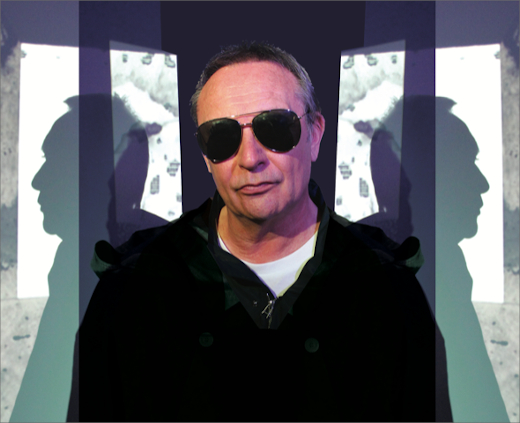
DON’T ARGUE ::
So before Richard’s passing, he very vocally like we said and do not understand why but he was reviving Cabaret Voltaire. The name has caché, he professed wanting to do stuff with the “future generations” as he called it. But with him gone what’s the future for Cabaret Voltaire? Are you responsible now for working with labels to do reissues or things like that?
Yeah, I won’t be using the name. I wouldn’t do it out of respect for Richard. Yeah, I wouldn’t exploit the name out of respect Richard and respect for both of us. But yeah, I mean I’m dealing with Mute at the moment about some reissues.
Yeah, I can understand your position from seeing what went on with New Order using the name without Hooky in the band. For me New Order is only Hooky, Barney, and Steven, and Jillian. Period. With Cabaret Voltaire I started with Sensoria, then as I always do this with bands, I go backwards and forwards. I started with Sensoria then for some reason, I don’t know how I missed the crackdown, I got mix up, and I’m like, “What the fuck is this? How did this band go to here?” And then as I built up the discography, “Okay, now I understand.” But that period really right up to Code (EMI), which I know you have a lot of feelings about is just so brilliant.
I mean, Code and Groovy, Laidback and Nasty (London) are probably scheduled to come out at some point, so I’m dealing with Mute on that. So yeah, those are the next three re-issues.
Oh great! Yeah, I’m a huge fan of Bill Nelson and I love that he’s in the video for.
“Here To Go!”
Yeah, he’s amazing. We share a birthday too, but he hasn’t gotten me anything in years, that bastard (LAUGHTER).






